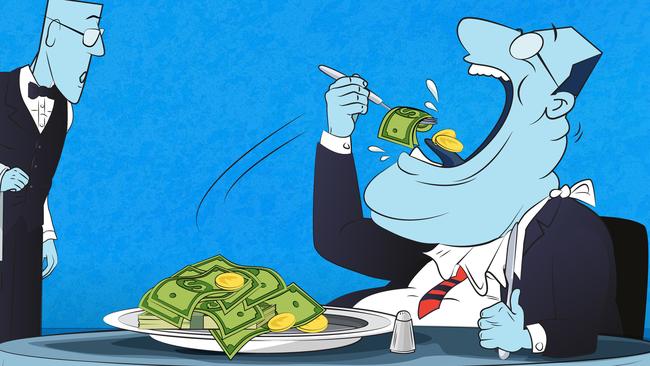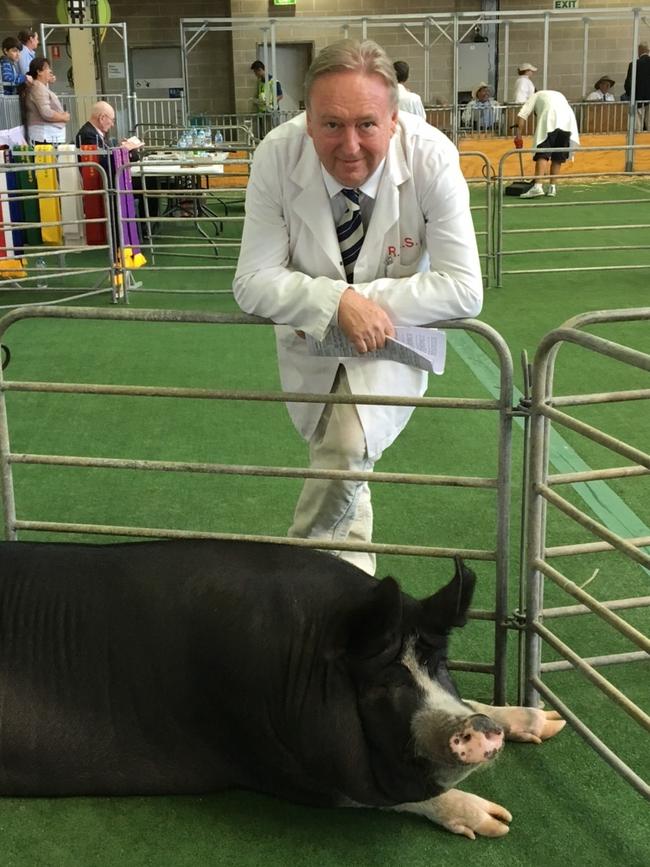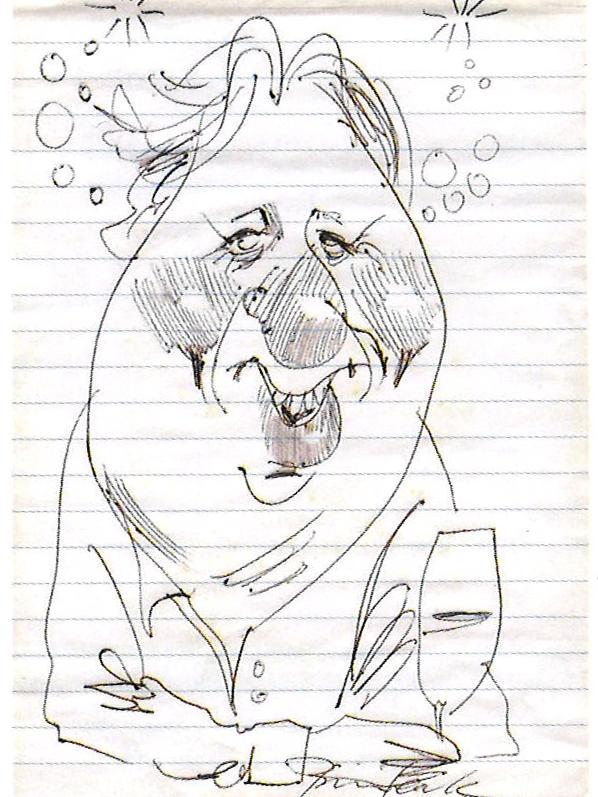It’s lunch time, meet you at the trough
I admit to being the beneficiary of expense-account generosity in the past, but in my defence taxpayers’ money was never in danger.

It was amusing, if a little sad, to read this month about some public servants taking themselves out for a fancy lunch on expenses, and a senator accused of being the worse for drink in parliament, for the stories reminded me of two of my favourite hobbies before wowserism began to suck the jollity out of life.
When you’re a miserable bureaucrat “working” from home I can see it might be a chore to drag yourself into the office to meet your colleagues in the sallow flesh. Only fair, then, that we should buy you food when you get a bit peckish. And yes, sandwiches are for losers (or taxpayers, which is the same thing). But $1200 for 10 of you, really? That’s downright embarrassing.
In the olden, nay golden, days a proficient luncher could beat that with one willing mate and a couple of imaginary clients. Then came Paul Keating with his Fringe Benefits Tax and – Time, gentlemen, please! – lunchtime extravagance, and no small number of restaurants, came to a sudden, sorry end.
The only consolation is that our governments continue to spend their tax windfall so much more wisely than we ever could. Ha!
Hence the outrage over the high-living education department gourmands. It’s bad enough that they have their snouts (and probably trotters) in the metaphorical trough all year round, without putting them in a $120-a-head real one at lunchtime.
Before I’m charged with hypocrisy, I confess I was often the dispenser and beneficiary (sometimes both at the same time – cheeky!) of unwarranted and poorly documented expense-account generosity, but with one significant difference: I’ve always worked in the private sector, where businesses make their own rules and don’t oblige everyone in the country to fund their largesse.
As for boozing in the workplace, my first boss in London taught me the essential lesson late one afternoon when I stumbled into the Sunday Times newsroom after the paper’s Northern Ireland correspondent, a gigantic man with the capacity of an oil tanker, had introduced me to the concept of the “family-size” gin and tonic.
“You will always find it easier,” the editor said coldly, as I screwed up my eyes to focus on his lips, “to explain to me why you weren’t here than why you are here and drunk.” I didn’t stop drinking, of course, but never returned to the office afterwards.
Years later, another benevolent editor would take me for lunch a couple of times a month to his favourite bistro in North Sydney, a reward for working on Sunday nights to match our US parent magazine’s production schedule.


Completely unauthorised, of course, but no one on either side of the Pacific ever questioned his spending, because he was a grown-up and an expert in cost-effective ways of getting the best out of his staff (or buying their loyalty, a more useful and reliable endeavour).
The bistro’s sommelier could spot a corporate Amex three streets away and would fly across the room to greet us. Ken would beam at him, wave away the proffered list and declare, “Wine, red as a hero’s blood!” followed by his ritual whispered warning: “Remember, young Waterson, the third bottle is always a mistake.” Correct, and one we never failed to make.
Oh it’s fun all right, but the risk when spending other people’s money is that it requires moral fortitude to resist the temptation to regard such expenditure as a right, rather than a privilege (witness our grasping politicians with their repugnant allowances).
When I was working in New York one distant March a colleague went to Alaska to cover the Iditarod sled-dog race for Sports Illustrated. The weather was cruel that year, so he took the opportunity to replace his inadequate headgear with a luxurious fur cap, handmade in Anchorage, with earflaps and a cosy, warm lining. It was so magnificent that to his fury our finance people instantly rejected his attempt to claim it.
Here was a man who travelled the world at the company’s expense, but his rage and indignant compulsion to avenge this slight continued to fester. Until one day, after months in the field, he marched into the accounts department and emptied a fat envelope of receipts onto the nearest desk. “There’s a fur cap hidden in there somewhere,” he shouted. “See if you can find it!”




To join the conversation, please log in. Don't have an account? Register
Join the conversation, you are commenting as Logout